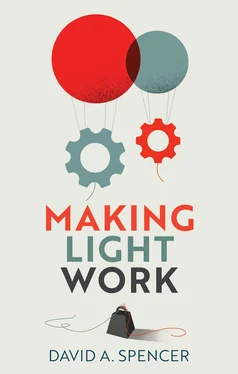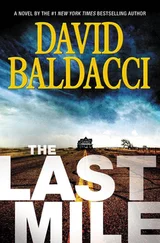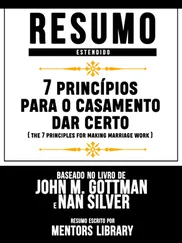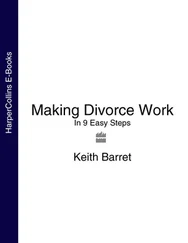The ideas in the book are outlined across several chapters. Chapter 2examines different meanings of work. Here I highlight the error of seeing work as perpetually bad or good and instead argue for a more nuanced approach that links the costs and benefits of work activities to the actual system of work. In advancing this argument, I invoke the ideas of Marx and Morris, including those on the scope for reclaiming work as a creative and pleasurable activity. Their vision of transforming work into something positive in human life is one I endorse. Indeed, this vision inspires ideas in the rest of the book.
Chapter 3asks why work hours have stayed long under capitalism and why the quantitative lightening of work has remained elusive. Focusing on J. M. Keynes’s famous 1930 essay, ‘Economic Possibilities for Our Grandchildren’, I examine the barriers to, and benefits of, working less. I defend the argument that work hours should be reduced in society and promote the vision of a future where shorter work hours add to the quality of work and life.
Chapter 4discusses some realities of modern work. I assess critically David Graeber’s ‘bullshit jobs’ thesis and evaluate other approaches that defend and criticize work in society. This discussion culminates in support for an objective definition of the quality of work. I focus on how the nature and system of work can limit workers’ ability to meet their needs, and I emphasize the importance of structural reform in delivering higher-quality work.
Chapter 5asks whether high-quality work can be made available to all. I show how some economic and ethical arguments endorse the restriction of high-quality work to a minority in society – in effect, contending that society should accept the inevitability of a world where some people (perhaps even the majority) do low-quality work. I refute these arguments. Instead, I build a case for extending to all workers the opportunity for high-quality work.
Chapter 6examines modern debate on the possibilities for automation and labour-saving technology. This debate is increasingly influential in shaping opinions about the future of work – indeed, it has led to predictions of the demise of work. I strike a sceptical note, pointing out limits to automation in the present. I also highlight how notions of automation have been linked to understandings of the meaning of work and how these notions have driven alternative agendas for change (some more radical than others). I argue that the modern debate on automation needs to tackle issues of ownership if it is to see the full potential for changing work in the future.
Chapter 7examines issues of policy and politics. I raise questions in relation to current growth-based policies, the objective of full employment and the implementation of a UBI. Instead, I set out an alternative reform agenda. The latter encompasses support for a four-day work week, but also returns to ideas found in Marx and Morris on the requirement to change the nature of work. Change here includes shifts in the goals of work as well as in the ownership of workplaces. The vision of work transformation drives the reform agenda I propose.
Chapter 8sets out the key conclusions and contributions of the book. In particular, it reiterates how less and better work can be realized jointly in a society beyond capitalism. I also reflect on how, given the occurrence of repeated crises, change has become a much more urgent and necessary task – one that we should seek to promote and help to bring into being. Visions of ‘building back better’, I conclude, are only credible if they include a direct commitment to reduce work hours while securing work tasks that are meaningful and pleasurable in themselves.
1 1. J. Chapelard, ‘Plumber Who Won £14 Million Lottery Jackpot Back at Work Fixing Toilets Two Days Later’, Mirror, 21 July 2016 (available at: https://www.mirror.co.uk/news/uk-news/plumber-who-won-14million-lottery-8462478).
2 2. Many lottery winners choose not to quit working, but rather to work fewer hours. The sense of work being something good in life and worth pursuing for its own sake seems to drive the decision to keep working. See, for example, the research findings reported in Picchio et al. (2018).
3 3. For historical studies of the concept and activity of work, see John Budd’s The Thought of Work (Budd, 2011) and Andrea Komlosy’s Work (Komlosy, 2018). For different critical accounts of work, see Edward Granter’s Critical Social Theory and the End of Work (Granter, 2009), Kathi Weeks’s The Problem with Work (Weeks, 2011), Peter Fleming’s The Mythology of Work (Fleming, 2015), David Frayne’s The Refusal of Work (Frayne, 2015), David Graeber’s Bullshit Jobs (Graeber, 2018) and Josh Cohen’s Not Working (Cohen, 2018).
4 4. See, for example, Nick Srnicek and Alex Williams, Inventing the Future (Srnicek and Williams, 2015), Paul Mason, Postcapitalism (Mason, 2015) and Rutger Bregman, Utopia for Realists (Bregman, 2018).
5 5. See, for example, Erik Brynjolfsson and Andrew McAfee, The Second Machine Age (Brynjolfsson and McAfee, 2014), Martin Ford, The Rise of the Robots (Ford, 2015) and Daniel Susskind, A World Without Work (Susskind, 2020).
6 6. The Political Economy of Work (Spencer, 2009).
7 7. Marmot et al. (2020) discuss the uneven economic and social impacts of COVID-19 in the UK and propose a set of new reforms to ‘build back better’.
8 8. On the ‘build back better’ agenda, see ‘OECD Policy Responses to Coronavirus (COVID-19)’, OECD, 5 June 2020 (available at: http://www.oecd.org/coronavirus/policy-responses/building-back-better-a-sustainable-resilient-recovery-after-covid-19-52b869f5).
Конец ознакомительного фрагмента.
Текст предоставлен ООО «ЛитРес».
Прочитайте эту книгу целиком, купив полную легальную версию на ЛитРес.
Безопасно оплатить книгу можно банковской картой Visa, MasterCard, Maestro, со счета мобильного телефона, с платежного терминала, в салоне МТС или Связной, через PayPal, WebMoney, Яндекс.Деньги, QIWI Кошелек, бонусными картами или другим удобным Вам способом.












